LONDON – Vladimir Putin has just been inaugurated for a third term as President of the Russian Federation. But the event’s pageantry could not mask that his return to the presidency, after a four-year stint as Prime Minister, is far from triumphant. On the contrary, Putin, who has been in power since 2000, represents the specter of stagnation that haunts Russia – a specter that wants at least another two six-year terms as President.
The contrast between the transition at the Kremlin and China’s upcoming – and strictly choreographed – power transfer could hardly be starker. This autumn, all nine members of the Politburo Standing Committee, including the country’s president, Hu Jintao, and premier, Wen Jiabao, will step down, and at least 14 members of the 24-member Politburo will retire, making way for a new generation of leaders.
So, although China has the more authoritarian system, it is moving forward. The same cannot be said for Putin’s Russia.
Unlike China, a one-party state, where real power is insulated from direct voting by layers of Communist Party structures, Russia has a multi-party political system, with regular elections at most levels of government. To be sure, not all parties or candidates are allowed to run, and elections can be manipulated. Still, there is more room in Russia than in China for opposition voices to express themselves.
Indeed, Russian civil society and protest movements are more assertive and politicized, while protests in China are crushed without remorse. The Russian media, particularly newspapers and radio, have more freedom as well, and openly disparage Putin, whereas Chinese journalists can take on issues like corruption, but may not criticize the Party. Likewise, the Internet is not censored in Russia as it is in China.
Given that China is significantly more authoritarian than Russia, it seems counter-intuitive that China’s political system manages to produce some rotation of leaders, however imperfect and even tense, whereas Russia does not. In this way, China takes advantage of one of democracy’s key benefits – leadership turnover – without the risk of popular accountability.
Can China’s modus vivendi work?
To be sure, in the short term, some authoritarian modernizers (for example, Singapore’s Lee Kuan Yew) serve their countries better than democratically elected leaders (for example, Italy’s Silvio Berlusconi). In the long run, however, democracies benefit from intrinsic self-correction mechanisms that are absent in autocracies, where often-inadequate leaders cling to power. Indeed, for every Lee Kuan Yew, there are many authoritarian non-modernizers, like Zimbabwe’s Robert Mugabe or Uzbekistan’s Islam Karimov.
The Chinese model combines some of the authoritarian modernization model’s advantages – centralized power, quick decision-making, insulation from populism, and a superior ability to implement painful but necessary reforms – with leadership turnover by de-personalizing political struggle. After all, China’s rulers are driven primarily by a desire to keep the party, not any individual, in power.
China’s more meritocratic system results in better performance when it comes to modernization. For example, according to Transparency International’s Corruption Perception Index, China ranks 75th, while Russia ranks 143rd; the World Economic Forum’s Global Competitiveness Report puts China in 26th place and Russia in 66th; and the World Bank’s Cost of Doing Business ranking has China in 91st and Russia in 120th place.
While power in Russia is less authoritarian, it is more personalized, making it much more vulnerable to an individual’s qualities or faults. So, although Russia is much closer than China to a modern, pluralistic state that is responsive to its citizens’ needs, Putin’s return to the presidency will likely mean that the next six, or even 12, years will deliver little, if any, progress.
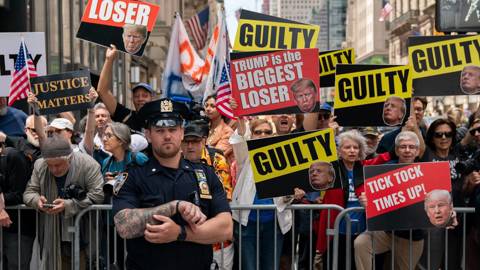
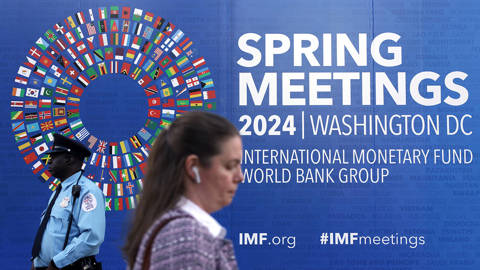

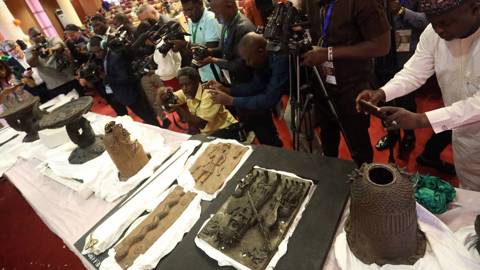
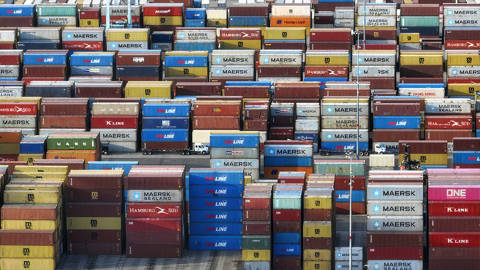
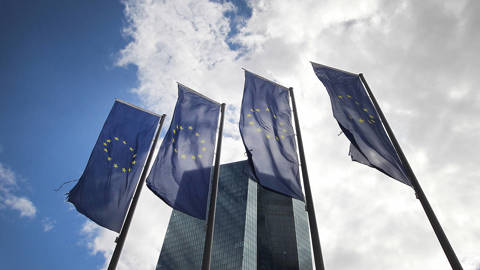
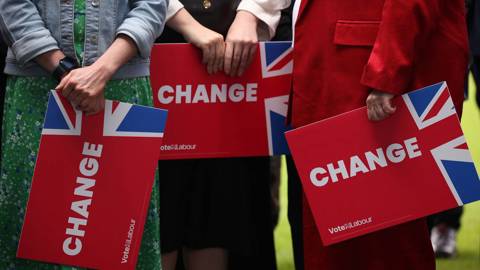
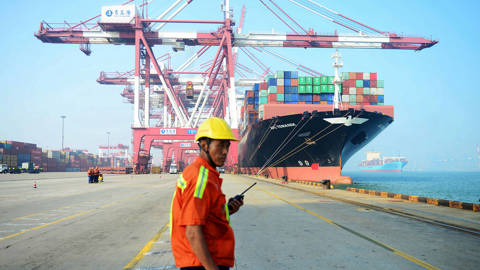
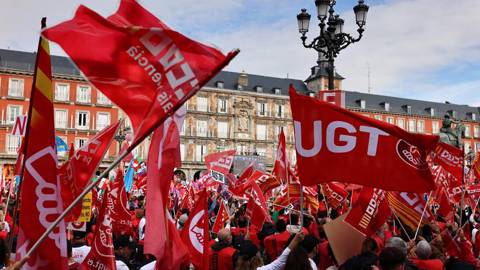
LONDON – Vladimir Putin has just been inaugurated for a third term as President of the Russian Federation. But the event’s pageantry could not mask that his return to the presidency, after a four-year stint as Prime Minister, is far from triumphant. On the contrary, Putin, who has been in power since 2000, represents the specter of stagnation that haunts Russia – a specter that wants at least another two six-year terms as President.
The contrast between the transition at the Kremlin and China’s upcoming – and strictly choreographed – power transfer could hardly be starker. This autumn, all nine members of the Politburo Standing Committee, including the country’s president, Hu Jintao, and premier, Wen Jiabao, will step down, and at least 14 members of the 24-member Politburo will retire, making way for a new generation of leaders.
So, although China has the more authoritarian system, it is moving forward. The same cannot be said for Putin’s Russia.
Unlike China, a one-party state, where real power is insulated from direct voting by layers of Communist Party structures, Russia has a multi-party political system, with regular elections at most levels of government. To be sure, not all parties or candidates are allowed to run, and elections can be manipulated. Still, there is more room in Russia than in China for opposition voices to express themselves.
Indeed, Russian civil society and protest movements are more assertive and politicized, while protests in China are crushed without remorse. The Russian media, particularly newspapers and radio, have more freedom as well, and openly disparage Putin, whereas Chinese journalists can take on issues like corruption, but may not criticize the Party. Likewise, the Internet is not censored in Russia as it is in China.
Given that China is significantly more authoritarian than Russia, it seems counter-intuitive that China’s political system manages to produce some rotation of leaders, however imperfect and even tense, whereas Russia does not. In this way, China takes advantage of one of democracy’s key benefits – leadership turnover – without the risk of popular accountability.
SPRING SALE: Save 40% on all new Digital or Digital Plus subscriptions
Subscribe now to gain greater access to Project Syndicate – including every commentary and our entire On Point suite of subscriber-exclusive content – starting at just $49.99.
Subscribe Now
Can China’s modus vivendi work?
To be sure, in the short term, some authoritarian modernizers (for example, Singapore’s Lee Kuan Yew) serve their countries better than democratically elected leaders (for example, Italy’s Silvio Berlusconi). In the long run, however, democracies benefit from intrinsic self-correction mechanisms that are absent in autocracies, where often-inadequate leaders cling to power. Indeed, for every Lee Kuan Yew, there are many authoritarian non-modernizers, like Zimbabwe’s Robert Mugabe or Uzbekistan’s Islam Karimov.
The Chinese model combines some of the authoritarian modernization model’s advantages – centralized power, quick decision-making, insulation from populism, and a superior ability to implement painful but necessary reforms – with leadership turnover by de-personalizing political struggle. After all, China’s rulers are driven primarily by a desire to keep the party, not any individual, in power.
China’s more meritocratic system results in better performance when it comes to modernization. For example, according to Transparency International’s Corruption Perception Index, China ranks 75th, while Russia ranks 143rd; the World Economic Forum’s Global Competitiveness Report puts China in 26th place and Russia in 66th; and the World Bank’s Cost of Doing Business ranking has China in 91st and Russia in 120th place.
While power in Russia is less authoritarian, it is more personalized, making it much more vulnerable to an individual’s qualities or faults. So, although Russia is much closer than China to a modern, pluralistic state that is responsive to its citizens’ needs, Putin’s return to the presidency will likely mean that the next six, or even 12, years will deliver little, if any, progress.